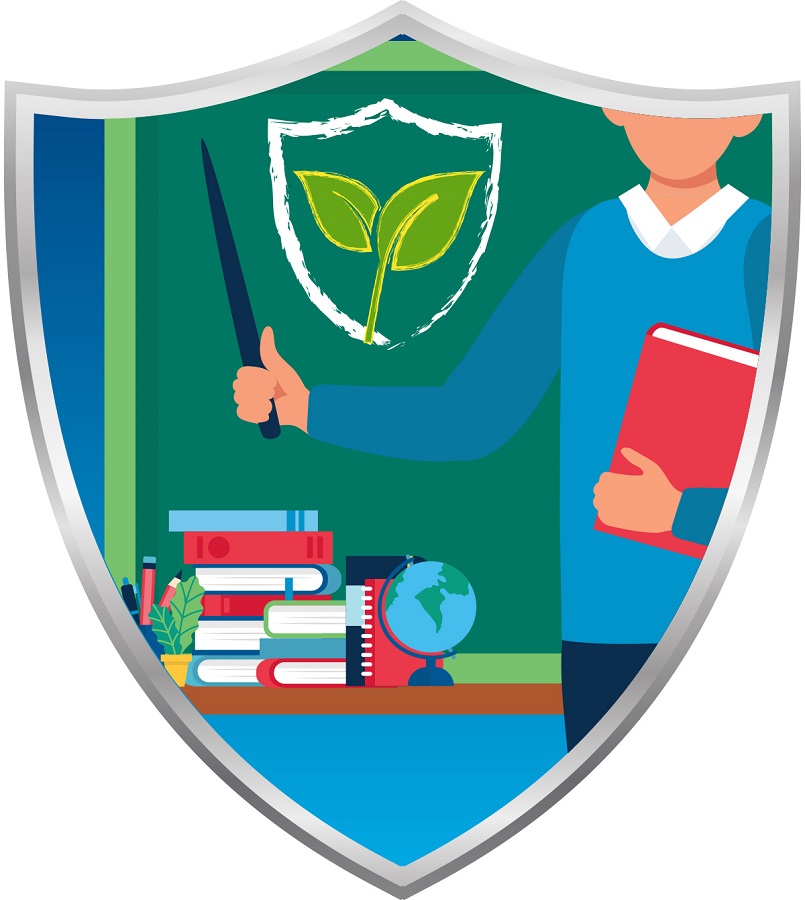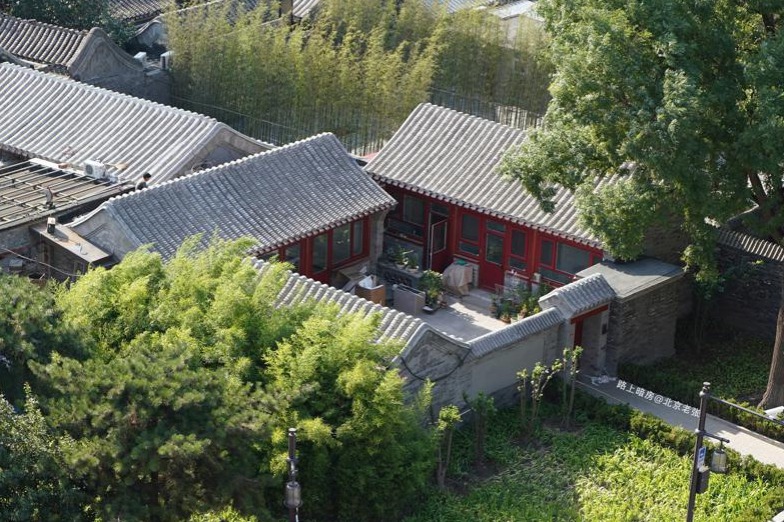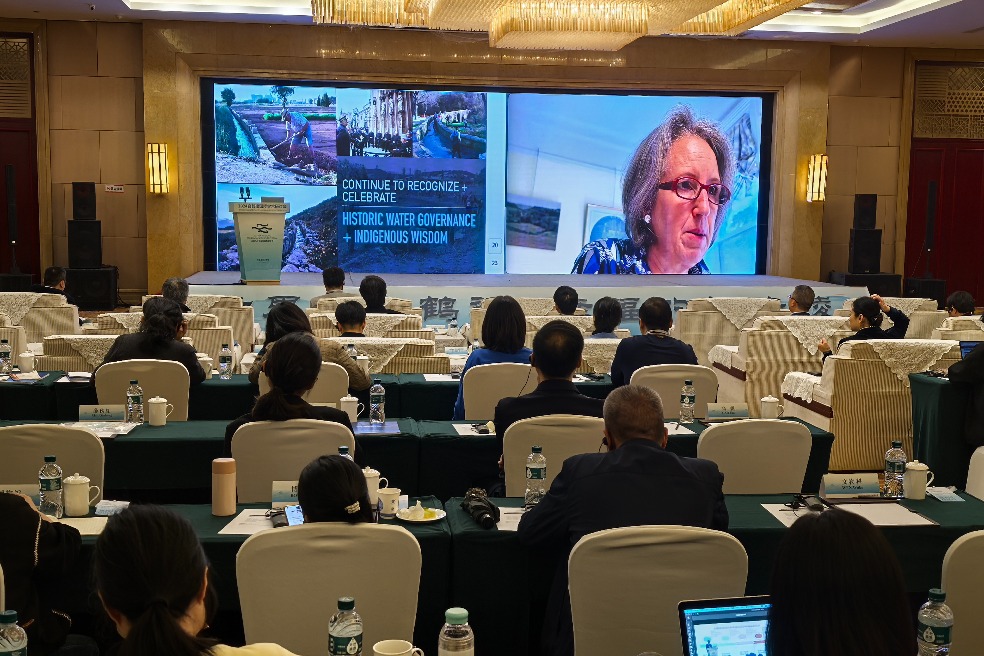Educators — 'engineers of the human soul'

Being a teacher of teachers is a noble vocation, and Hong Kong must cultivate 'new quality' educators who can meet the city's needs in the new era with a deeper understanding of national developments, EdUHK president John Lee Chi-kin tells Stephy Zhang.

Editor's note: Education is playing a key role in nurturing talent, fostering intellectual discourse, and driving progress in the Guangdong-Hong Kong-Macao Greater Bay Area. China Daily will present a series of interviews with university heads in the region on their perspectives, wisdom, and vision for future education development.
Teachers with exceptional qualities can have a profound influence on students — a fact that was deeply ingrained in veteran educator John Lee Chi-kin at a young age.
He credits good teachers with instilling in him the ability to see the truth, goodness and beauty, which he treasures. Teachers not only impart knowledge to him, but also show him how they see things and care about others.
In a one-on-one interview with China Daily, Lee, who became the sixth president of the Education University of Hong Kong in September, promises to steer the publicly funded tertiary institution toward nurturing more thoughtful, communicative and knowledgeable educators who can meet Hong Kong's needs in the new era.
Lee graduated from the University of Hong Kong before obtaining a master's degree at the University of Oxford and a doctoral degree in philosophy and a diploma in education from the Chinese University of Hong Kong.
He had taught at a secondary school, and the Hong Kong Institute of Education, which later became the EdUHK in 1994, as well as the CUHK before returning to the EdUHK in 2010. Lee is also director of the university's Academy for Applied Policy Studies and Education Futures, the Academy for Educational Development and Innovation, and the Centre for Religious and Spirituality Education.
Lee says what made him become an educator was the same as for many others in the profession — a desire to emulate teachers he has admired and create a positive effect on youngsters.
Despite his packed schedule as the head of a university, Lee always shows up at classes to share his thoughts and vision with students and enjoys listening to them. He's proud to have taught at a secondary school and a normal college for a long time, enabling him to build up close bonds with students.
He reminisces over having met a student he hadn't talked to for a long time who still called him "teacher", generating a feeling of recognition and respect. "Such kind of pride is priceless," says Lee.
"I had been a student and teacher. Now, I'm training teachers, so I'm a teachers' teacher," he says in jest, adding that his responsibility to educate students is now greater than ever.
Lee hopes every student at EdUHK realizes that the influence they have on society is vast. In his view, students do remember a teacher's words and behavior and may, unconsciously, imitate them. As the institution trains teachers for kindergartens, primary and secondary schools, as well as universities, the teachers it nurtures will influence students of all ages, especially younger children. "I aim to train our students to be distinguished teachers or professors with the psyche of educators."
Lee stresses that being professional is the first quality a teacher should acquire, and the EdUHK's curriculums are designed to train professionals. Obtaining a bachelor of education degree at the EdUHK generally requires a five-year course, plus internships for students to hone their teaching skills at different schools.
Lee says he believes people's experiences in life, wisdom and personal values are complementary to generating professionalism. People should strengthen their own moral education before encouraging others to follow suit.
Lee attaches great importance to developing teachers' ethics, especially patriotism, hoping to nurture more talent to love Hong Kong and the country.
Last year, the EdUHK and the Qufu Normal University in Jinan, Shandong province, sealed an agreement to promote exchanges and provide teachers and students with more opportunities to experience traditional Chinese culture. An exchange trip to Shandong — the birthplace of Confucius — can inspire students to have a deeper understanding of Confucianism, while an expanded tour to the Chinese mainland will showcase the nation's latest developments, says Lee. "With Hong Kong as a bridge linking the mainland and the world, understanding developments in the country is the basic requirement for Hong Kong students."
Educating quality teachers
Referring to the EdUHK's newly established National Security and Legal Education Research Centre, Lee says a comprehensive understanding of national security is a prerequisite for educators in the special administrative region. The EdUHK has also been active in strengthening ties with economies engaged in the Belt and Road Initiative to expand students' international perspectives.
Lee stresses it's vital for Hong Kong to produce "new quality educators", and this calls for deeper understanding of emerging industries and new technologies like artificial intelligence. "New quality educators need to develop abilities in all aspects and excel in some of them."
The EdUHK recently set up two academies — the Academy for Applied Policy Studies and the Education Futures and the Academy for Educational Development and Innovation — to strengthen the university's technology education.
In Lee's view, teachers should not only expound knowledge from textbooks, but also help students grasp the changing international situation, be aware of national and global development trends, and stay up to date on technological breakthroughs. That's why the university has added more high-tech components to its curriculum.
Nurturing future talent
Hong Kong is committed to being an international education hub, which the education industry can capitalize on to create a better talent pool for national and regional development, while attracting global talent, says Lee. In this respect, the EdUHK offers numerous scholarships and incentives annually to encourage students to undertake research and study on the mainland and around the world.
Besides nurturing high-end talent for academia and research, vocational education is also important to the SAR as the positioning of "eight centers" in the city under the nation's 14th Five-Year Plan (2021-25) is closely related to industries.
The EdUHK's mission is to raise more professionals who can collaborate, communicate, think critically, create and make sound decisions for Hong Kong, says Lee. Hong Kong's open environment will entice people from various places to exchange and generate new ideas, fostering new collaborative opportunities.
"You see, I didn't start doing this today," he says, proudly displaying the books he had written while working on the mainland. In 1998, the educator released a book on the theory and practice of environmental education in the mainland's primary and secondary schools, discussing topics that are still relevant and popular today. Lee had made several research trips to western China for three consecutive years before publishing books on the development of education in the inland regions in 2015. "As a Chinese scholar born in China, those days have been of exceptional value to me."
The EdUHK has been organizing visits to schools in other cities of the Guangdong-Hong Kong-Macao Greater Bay Area for all undergraduate students since 2023, with more than 1,300 students joining the tours each year.
The university launched the Pilot Scheme of GBA Field Experience in the 2022-23 academic year. During the program's maiden trip, 14 undergraduate students visited the Shenzhen Hong Kong Pui Kiu College Longhua Xinyi School, followed by practice teaching at the Guangzhou or Dongguan campuses of the Affiliated School of Jinan University for Hong Kong and Macao Students.
"As students choose to pursue an education major, they must be mentally prepared to become an educator," says Lee. A teacher should enjoy working with children, and he expects students aiming to be teachers to use more of their time watching a child's development and fostering future national leaders. "But, if you want to be rich, don't be a teacher," he advises, emphasizing that teaching is a profession that brings a merely stable income.
Having a mindset of empathy and putting oneself in others' shoes is also crucial. "We've all experienced being students, so how do you want your teachers to treat you? That's how you should treat your students."
However, Lee admits it's difficult trying to be passionate about what one is doing or intends to do. He himself has persisted with learning for more than three decades from the age of 20 when he took up education as a career.
Many people have told Lee that being a university president is a lengthy and tough job. His answer is that teaching is a noble vocation with matching demands.
Teachers are more than just knowledge transmitters. They're engineers of the human soul, says Lee.
- Post-2000 young people redefine work, leisure
- Macao SAR elects new chief executive-designate
- Macao elects new chief executive-designate
- Poisoning at biotechnology firm kills seven, injures four in Shandong
- University students take part in a model CPPCC program
- Hutong offers authentic experience of 'Beijing life'




































